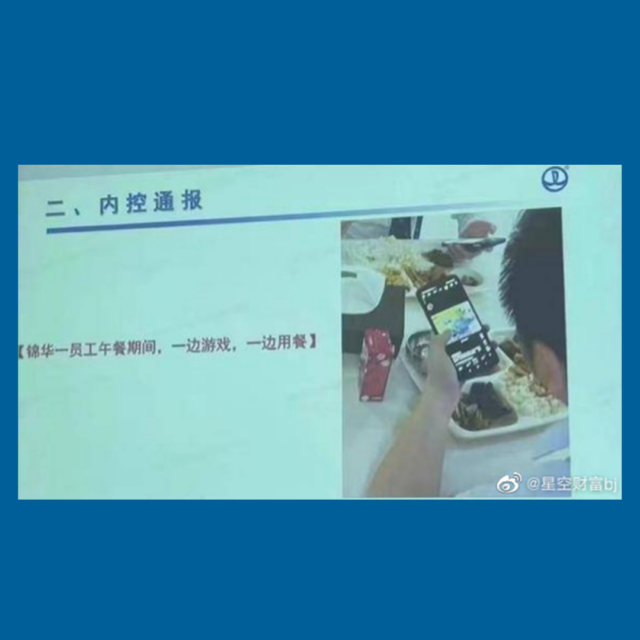“It’s better to go to jail than go to work”
“At least allow employees to eat lunch at their leisure.”
Strange but true: an employee of the Chinese real estate conglomerate the Wanda Group, was publicly humiliated by his company for going through his mobile phone while having lunch. A picture of him playing on a mobile phone at lunchtime, was circulated by the company to warn others that such behaviour was unacceptable and against company culture. The hashtag #Wanda Group employee playing on a mobile phone at lunchtime, then started to trend on Weibo.

It triggered a storm on Weibo netting more than 230 million views. One netizen sporting a Verified Weibo handle, expressed his dislike of such company culture, saying: “Selling oneself to capital and working like cattle or horses is worse than being in prison, at least in prison one can have some time to go outside.”


Beijing Daily, which has a circulation of around four lakhs, posted the results of a survey asking readers if they thought that workers should be permitted to use their phones during lunch breaks. Ninety per cent agreed that they should have complete freedom during lunch.

As another netizen commented:

Lawyer Li Xiaoli made her feelings clear in this comment:

Another netizen said:

The comments are a searing indictment of the “996 work culture” in China, where employees are expected to work from 9 am to 9 pm six days a week. This is not the case with all Chinese firms, but the problem is widespread enough to generate dissatisfaction in the workplace. The 996 culture brings many issues requiring employees to put in a gruelling 72 hours a week, significantly exceeding the standard 40-hour workweek. This leaves little time for personal activities, rest, and a healthy work-life balance.
Continuous long hours of work without sufficient rest can lead to physical and mental fatigue, resulting in increased stress levels and potential health problems. Lack of adequate sleep and leisure time can impact employees’ overall well-being.
The 996-work culture disrupts employees’ personal lives, making it challenging to spend quality time with family and friends. This can lead to strained relationships, a decline in personal happiness, and a lack of work-life integration.
It cuts into employees’ opportunities for personal growth and skill development outside of work. This can limit their ability to pursue hobbies, engage in further education, or explore other interests.
While the 996-work schedule may initially appear productive, studies suggest that long work hours can lead to diminishing returns. Fatigue and burnout can reduce overall productivity, creativity, and efficiency, ultimately affecting the quality of work produced.
The 996-work culture disproportionately affects employees with caregiving responsibilities, such as parents or those with other family obligations. Balancing work and personal life is especially challenging for them.
Efforts are being made to advocate for better work-life balance, fair labour practices, and employee rights.
















